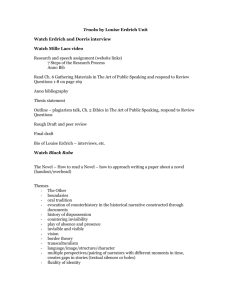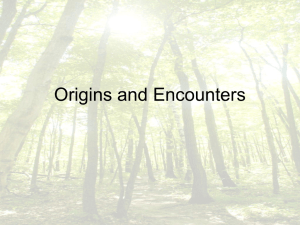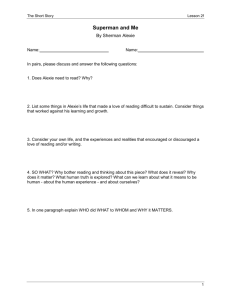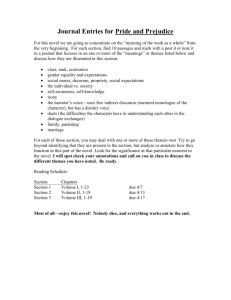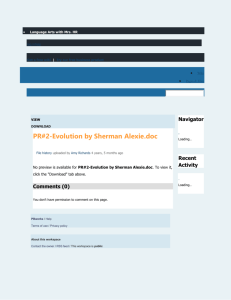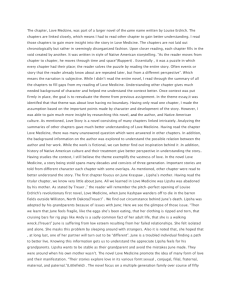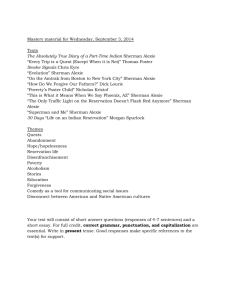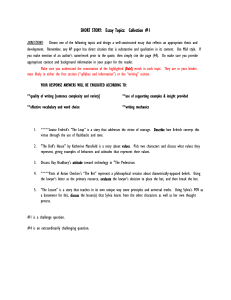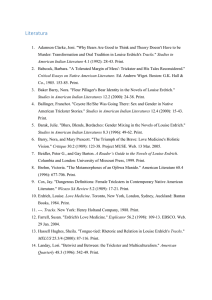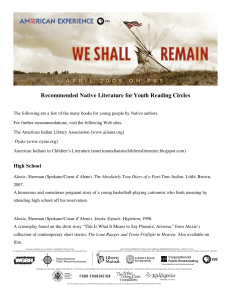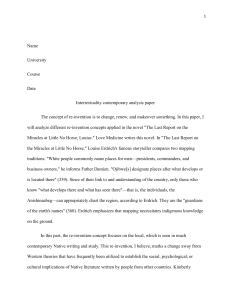History 181 Literature Paper You are required to read one of the
advertisement
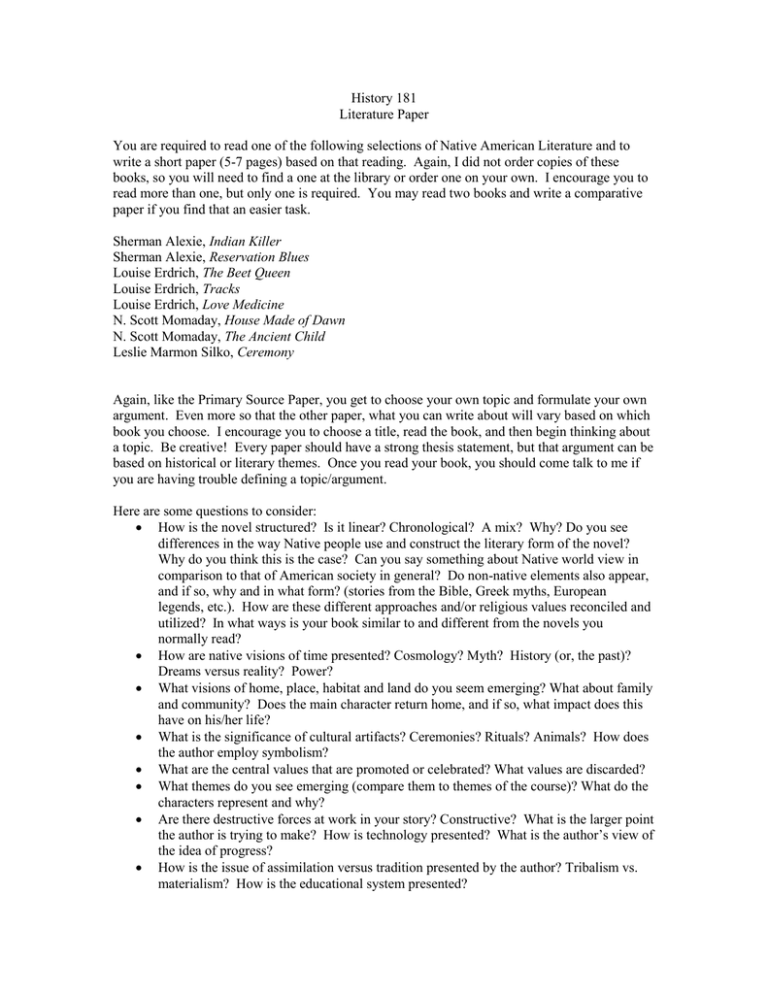
History 181 Literature Paper You are required to read one of the following selections of Native American Literature and to write a short paper (5-7 pages) based on that reading. Again, I did not order copies of these books, so you will need to find a one at the library or order one on your own. I encourage you to read more than one, but only one is required. You may read two books and write a comparative paper if you find that an easier task. Sherman Alexie, Indian Killer Sherman Alexie, Reservation Blues Louise Erdrich, The Beet Queen Louise Erdrich, Tracks Louise Erdrich, Love Medicine N. Scott Momaday, House Made of Dawn N. Scott Momaday, The Ancient Child Leslie Marmon Silko, Ceremony Again, like the Primary Source Paper, you get to choose your own topic and formulate your own argument. Even more so that the other paper, what you can write about will vary based on which book you choose. I encourage you to choose a title, read the book, and then begin thinking about a topic. Be creative! Every paper should have a strong thesis statement, but that argument can be based on historical or literary themes. Once you read your book, you should come talk to me if you are having trouble defining a topic/argument. Here are some questions to consider: How is the novel structured? Is it linear? Chronological? A mix? Why? Do you see differences in the way Native people use and construct the literary form of the novel? Why do you think this is the case? Can you say something about Native world view in comparison to that of American society in general? Do non-native elements also appear, and if so, why and in what form? (stories from the Bible, Greek myths, European legends, etc.). How are these different approaches and/or religious values reconciled and utilized? In what ways is your book similar to and different from the novels you normally read? How are native visions of time presented? Cosmology? Myth? History (or, the past)? Dreams versus reality? Power? What visions of home, place, habitat and land do you seem emerging? What about family and community? Does the main character return home, and if so, what impact does this have on his/her life? What is the significance of cultural artifacts? Ceremonies? Rituals? Animals? How does the author employ symbolism? What are the central values that are promoted or celebrated? What values are discarded? What themes do you see emerging (compare them to themes of the course)? What do the characters represent and why? Are there destructive forces at work in your story? Constructive? What is the larger point the author is trying to make? How is technology presented? What is the author’s view of the idea of progress? How is the issue of assimilation versus tradition presented by the author? Tribalism vs. materialism? How is the educational system presented? Is there a tension between different cultures? If your main character is mixed-blood, how does the author mediate the different cultural influences in their life? How are whites and American society presented? Why? How would you define the identity of the author? The main characters or heroes? Do you see differences in the way the central character of these novel behaves versus the way a hero typically behaves?
